Scottish independence: Why are many Catalans desperately hoping that Scotland will vote 'yes'?
Alistair Dawber talks to people in two very different places who are facing strangely similar dilemmas
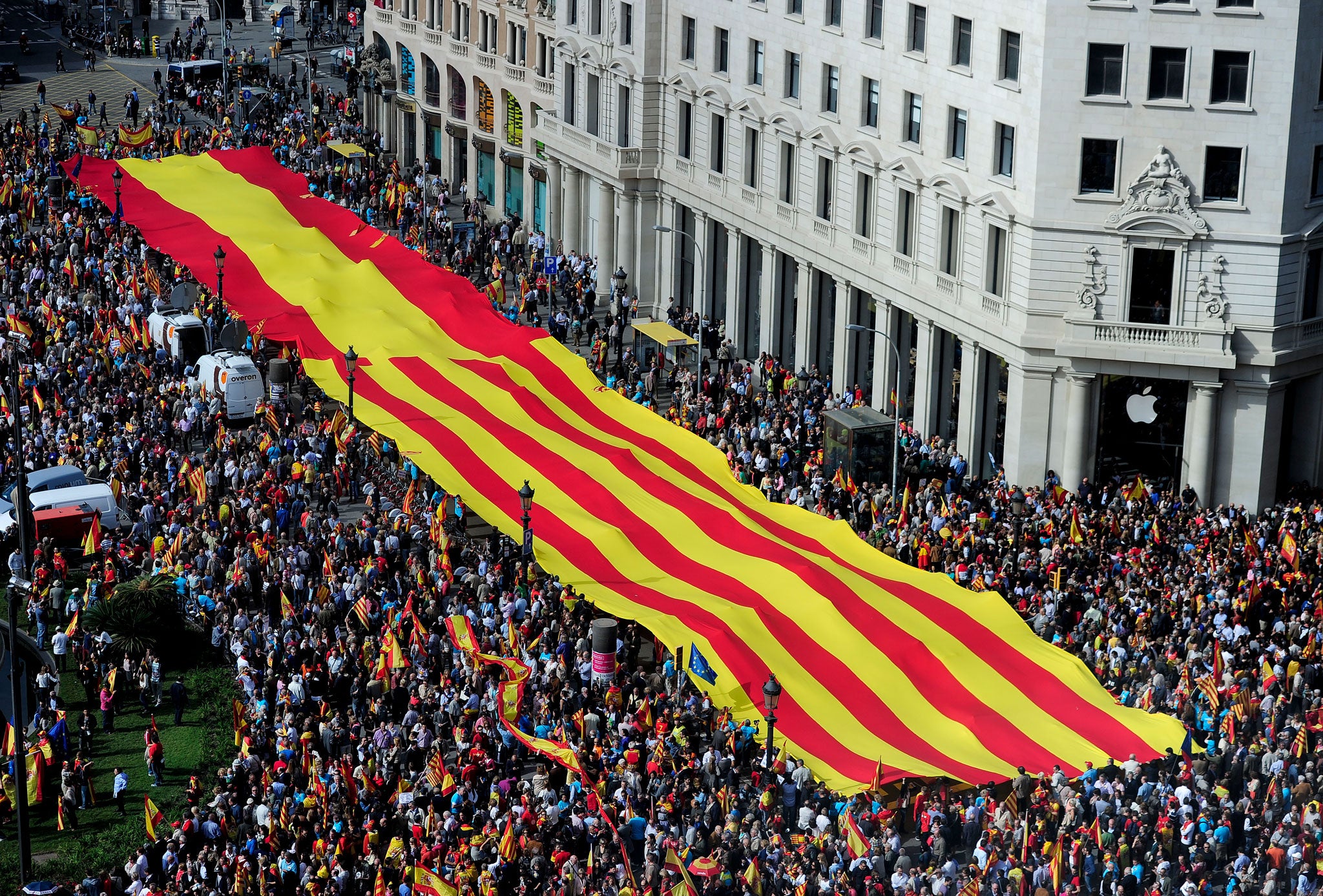
Your support helps us to tell the story
This election is still a dead heat, according to most polls. In a fight with such wafer-thin margins, we need reporters on the ground talking to the people Trump and Harris are courting. Your support allows us to keep sending journalists to the story.
The Independent is trusted by 27 million Americans from across the entire political spectrum every month. Unlike many other quality news outlets, we choose not to lock you out of our reporting and analysis with paywalls. But quality journalism must still be paid for.
Help us keep bring these critical stories to light. Your support makes all the difference.
In just over a month's time, a country that probably doesn't want independence from another will get a vote on whether to separate, and a fiercely autonomous region elsewhere that almost certainly does want to secede from a larger nation won't be allowed to. Such is Europe in 2014.
By 19 September, if scores of polls are to be believed, the question of self-determination for Scotland will be buried for generations. Not a single census on how Scots will vote in the first plebiscite on independence has suggested that they will support their government and create arguably the greatest constitutional crisis the UK has ever known.
Meanwhile, just over 1,000 miles away, the regional administration in Barcelona, which can point to a wealth of evidence to suggest that Catalans would at least like the opportunity to express their opinion, will continue to be frustrated. A week before the referendum in Scotland, hundreds of thousands, perhaps as many as a million, are again expected on the streets of Barcelona to demand that their voice be heard. And as before, the government in Madrid will likely ignore them.
In November, in an unofficial two-question 'consultation' organised by the regional government, Catalans will be asked: Would you like a vote on self-determination? If yes, would you like an independent Catalonia? Despite the Spanish government insisting that it will not be recognised, indeed that the very event will be considered unlawful, poll data suggests that a majority will vote 'yes, yes'.
In Barcelona, David Cameron is regarded as something of hero – a true democrat – for allowing Scots to vote. Why, they ask, will the Spanish prime minister in Madrid, Mariano Rajoy, whose politics are similar to Cameron's, not afford Catalans the same privilege?
In Scotland, however, where the Prime Minister has hardly been seen (he chose to make his first set-piece speech making the case for the union from the former Olympic site in east London), people gleefully point that there are more giant pandas than there are Conservative Members of Parliament. For the record, there are two giant pandas in Scotland. And both are infinitely more popular than Cameron.
The answer to the Catalans' question is simple: Scots have been granted their referendum because a pro-Union Westminster government doesn't think they will vote in favour. In Barcelona, Rajoy knows that the Catalans cannot be similarly trusted.
But both men have a problem. If Scots do buck expectations and support independence – a poll at the end of July suggested the undecideds were leaning towards a split – Cameron will almost certainly have to resign. The man who, after 307 years, couldn't keep the Union together could not possibly be expected to sort out the resulting mess. The problems of the UK's nuclear weapons (based in Scotland), the Queen; sterling; borders; international treaties and so on could not be trusted to a man who had allowed Scotland to vote. And lost.
Rajoy has a bigger problem. At No 10, David Cameron can cross his fingers and hope that the problem will go away, and it probably will. Despite a fairly lacklustre 'no' campaign (a factor that is persuading some ardent unionists in Scotland to consider voting 'yes'), Scotland is likely to remain British.
Rajoy doesn't have the luxury of a definitive referendum. Everyone knows that Catalonia – for a long time one of Spain's most important sources of revenue – will probably back independence in its unofficial poll, and so the Madrid government hides behind the Spanish constitution, which apparently doesn't allow for Catalans to decide their own future. And the row becomes ever more entrenched and bitter.
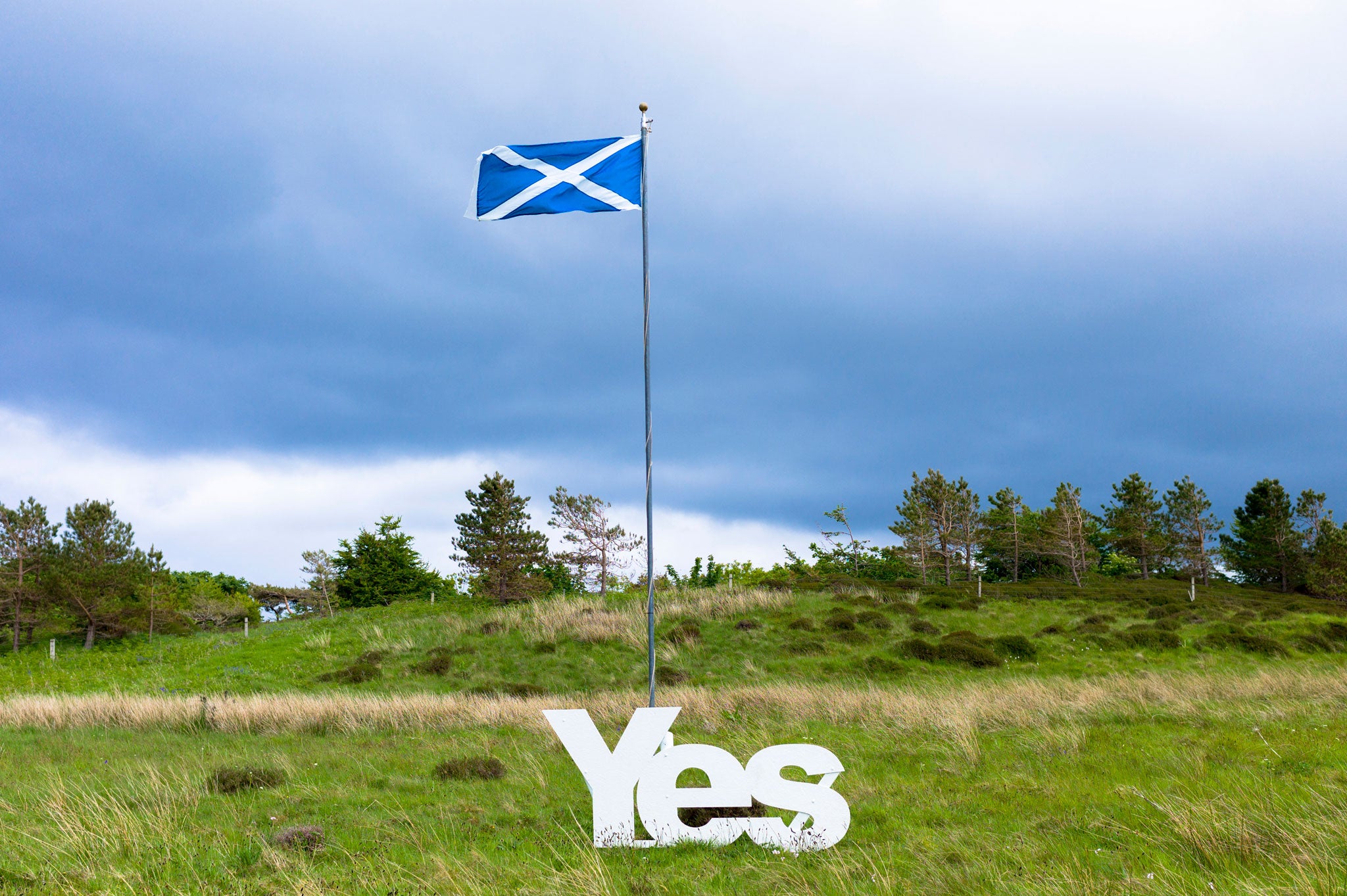
In each case, it is not entirely clear how we have reached this point. Why, after more than three centuries as part of the UK is Scotland voting in September; why after even longer as part of Spain, are Catalans demanding a similar poll? After all, some people in other parts of Europe would gladly secede from their larger nation. Why not a similar vote for Cornwall, or Yorkshire, Bavaria or Lombardi?
Predictably enough, despite bagpipe-playing and kilt-wearing nationalism on one hand, and Catalan-speaking, FC Barcelona-supporting on the other, both cases ultimately come down to a question of money.
And despite the richness of Catalan language, culture, history and all the rest, support for independence has not always been so high. But activists in Barcelona speak of the indignity of the way in which they are treated by Madrid. One, who organises the annual march for self-determination, which attracts as many as a million people, describes the situation to me as "an occupation".
"In the early 2000s, more autonomy was proposed for Catalonia," says Carles Boix, a Catalan and a professor of politics and public affairs at Princeton University in the US. "This was approved by [former prime minister José Luis] Zapatero's government and was passed by a referendum in Catalonia, with a majority of 88 per cent.
"The issue then went to the constitutional court which in 2010 ruled that fundamental parts of the autonomy law were unconstitutional. It meant that the Catalans – with a massive campaign against the autonomy law in Madrid – had achieved nothing.
"This hurt the self-esteem of the Catalans tremendously and led to an increase in the civil movement for independence – it spread like wildfire and within less than a year more than a million demonstrated on the streets."
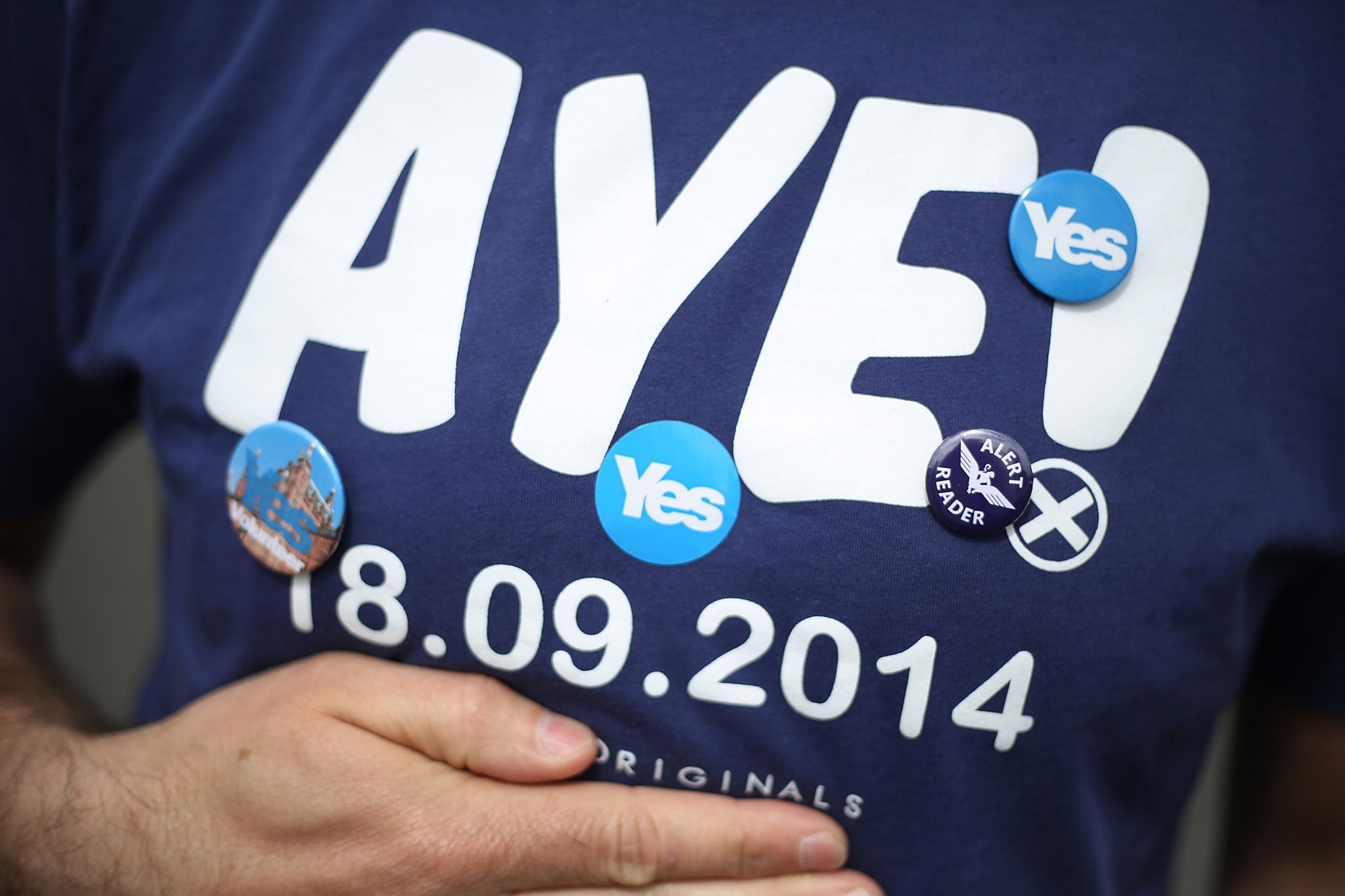
Professor Boix's view is echoed in Catalonia where many argue that Madrid treats them like second-class citizens. There have also been restrictions on the use of the Catalan language in the region's schools, which for older Catalans is darkly reminiscent of the Franco era before democracy was restored to Spain in 1977. That, incidentally, led to the new constitution in 1979 and guarantees of limited autonomy for Catalonia.
But on the other side of the coin, pro-independence Catalans are reluctant to play much of a role in Spanish life either. "I'm more concerned with what the president of Barcelona [football club] is doing, rather than what the king says," says local lawyer Eduard Sagarra i Trias.
Barcelona is booming, and while not all of the region is wealthy, Catalonia, the fourth richest region in Spain, is creating more jobs and is a net contributor to the Spanish treasury. "An observer from Mars would see that Barcelona is doing better," Andreu Mas-Colell, Catalonia's economy minister, told me.
Indeed support for Catalan independence has grown as Spain has fallen deeper into its economic coma. Back in March 2007, a full year before the first warning bells about the global economy were heard, a Centre d'Estudis d'Opinió poll suggested that just 14.5 per cent of Catalans favoured full independence. Fast forward to January this year and support had grown to 54.7 per cent. Those pressing for at least the right to decide is in the 80s.
One senior Spanish government official, who spoke on condition of anonymity, argues that once a recovery is underway in the rest of the country, "the less support you will see for Catalan independence".
Artur Mas, the conservative president of Catalonia, dismisses this idea, but concedes that without support from Madrid, Catalans' voices are unlikely to be heard.
"There are legal ways, but this is a step-by-step process. Once we know the opinion of the Catalan people [after November's unofficial referendum] then we can move forward. I don't know if there will be a clear majority for independence. If there is a majority, that gives the Catalan government a clear mandate to negotiate with Madrid."
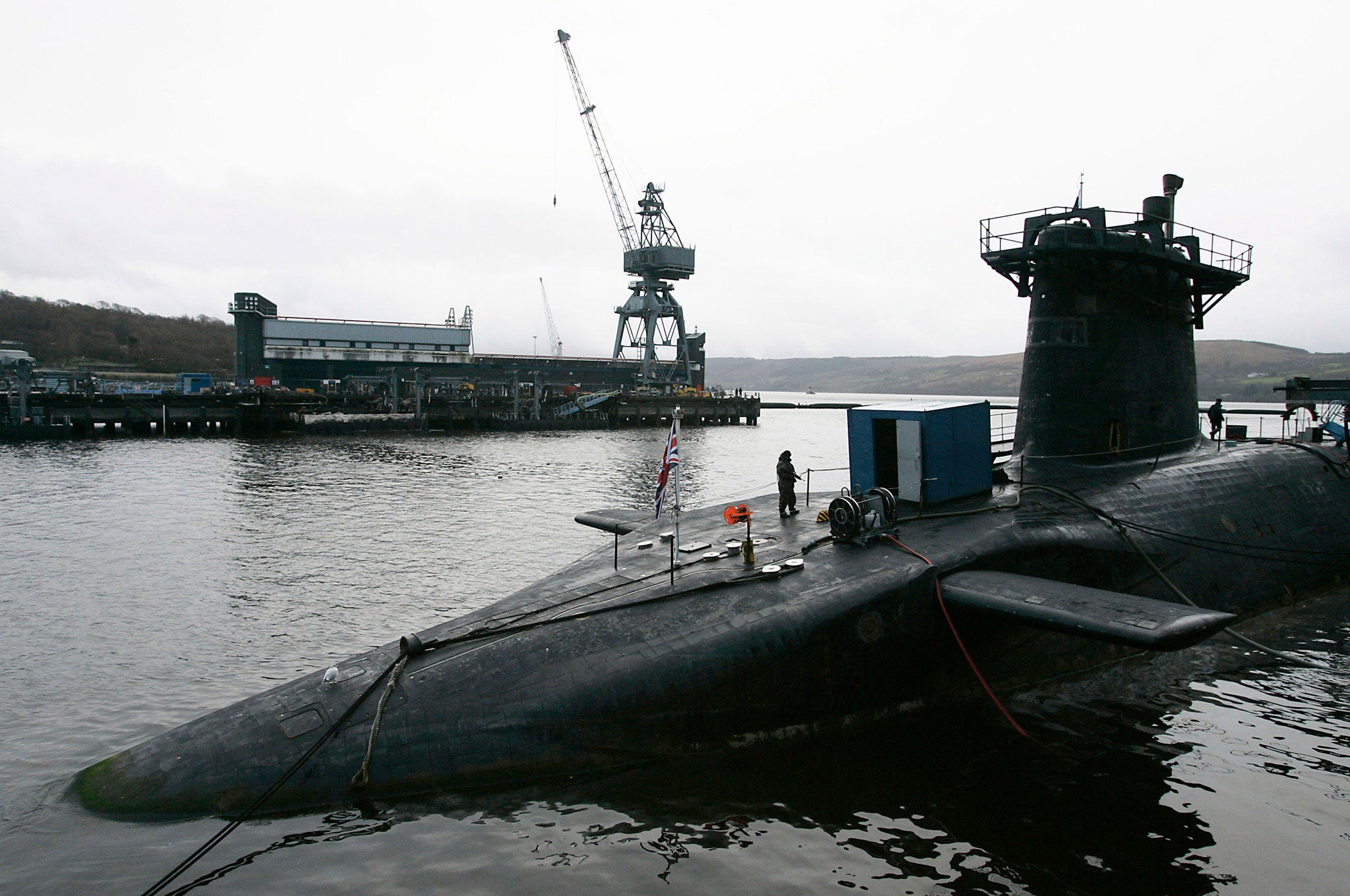
Mas, who himself is only a fairly recent convert to the independence movement, is accused by senior Spanish officials of wanting enough wiggle room to negotiate further powers for Catalonia, while secretly hating the idea of full independence. Asked directly how he will vote, Mr Mas insists he will vote, "yes, yes".
In the upmarket Davidson Mains area of Edinburgh, the "yes" campaigners have set out their stall in front of the local secondary school. Schoolchildren are a hitherto unchartered battleground for campaigners, but the franchise in September's vote will include 16- and 17-year-olds for the first time.
Self-employed Fergus, who says he is devoting an increasing amount of his time to the yes campaign, banters with the schoolchildren as they go to the local shops during their lunch break. "We've reached a tipping point," he says. "Yes, we're behind in the polls, but probably only slightly behind now. In the cities, our canvassing says we're ahead in some areas – quite well ahead in some. What we're finding on the streets is that people are pretty shiftable; they're open to revising their opinions.
"In some traditional Labour and Lib Dem areas people are at the bottom. They are increasingly thinking they have nothing to lose. They think they've been let down by the UK government."
And here's the rub. If in Catalonia it is the rich hoping that independence will go some way to preserving their wealth, in Scotland, it is those from poorer areas who think they have nothing to lose by trying something different.
"On Scotland's working-class estates, there is a high level of disenfranchisement," says Dr Neil McGarvey of Strathclyde University. "People believe that the state, in its current incarnation is not delivering for them. For those with lower income levels, there is little risk in voting for independence."
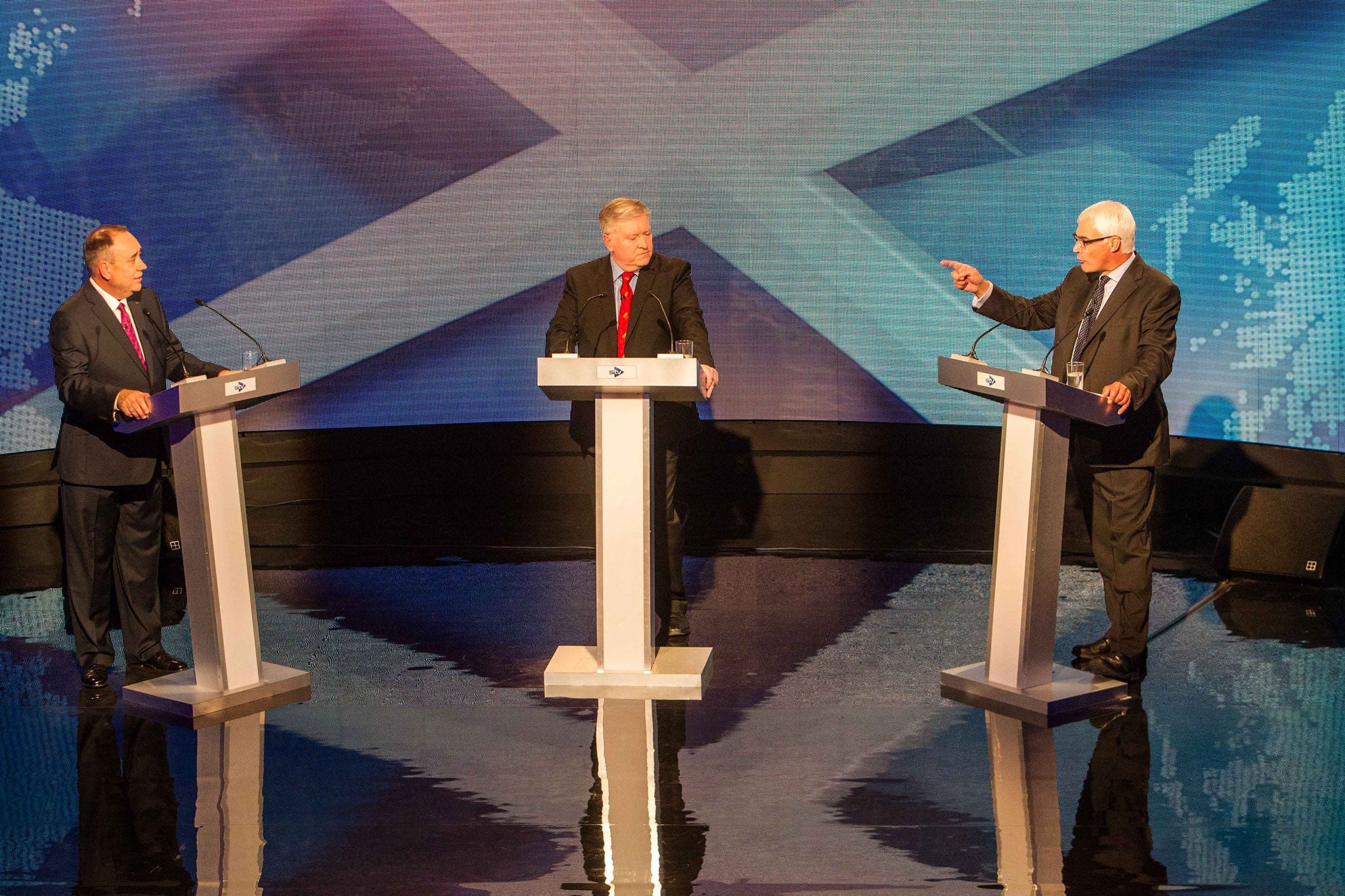
The vote for devolution in 1997 brought with it an expectation that unionist parties would dominate government in Edinburgh – that was until Alex Salmond's SNP emerged on top a decade later. The Westminster government could do little but agree to a referendum, taking comfort in the thought that while Scots may have tired of the two main Westminster parties, they were unlikely to support Salmond's most ambitious project.
Despite being ahead in the polls, the 'Better Together' campaign led by former chancellor Alistair Darling is annoying just about everyone. Time and again during two days in Edinburgh and Glasgow, I was told that the campaign, which has focused on the cost to Scotland of breaking away, was too negative; instead of extolling the benefits of a united Britain, it has largely limited itself to making threats.
Each of the main Westminster parties has signed up to the campaign which has focused on the economic cost of separation – estimated somewhere between £1.5bn and £8bn – with some rather outlandish claims being made about border posts being constructed between England and Scotland, and Faslane naval base on the Clyde – home to the UK's nuclear submarines – becoming a Gibraltar-style English enclave.
Anne Fernie, a 'Yes' campaigner and member of Alex Salmond's SNP, says this is playing into the hands of her movement. "Lots of people I meet are very disappointed in the Better Together campaign. Despite the fact that it is much better resourced, and has so much more support among the media, it has insisted on such negativity. There is so much that's positive about Scotland that people are not hearing from them."
This is a point that is disputed by Blair McDougall, Better Together's campaign director. Speaking from his headquarters in Glasgow, McDougall insists that "the attempts to make it about identity and 'do you believe in Scotland' have failed because Scots are perfectly comfortable in having multiple identities.
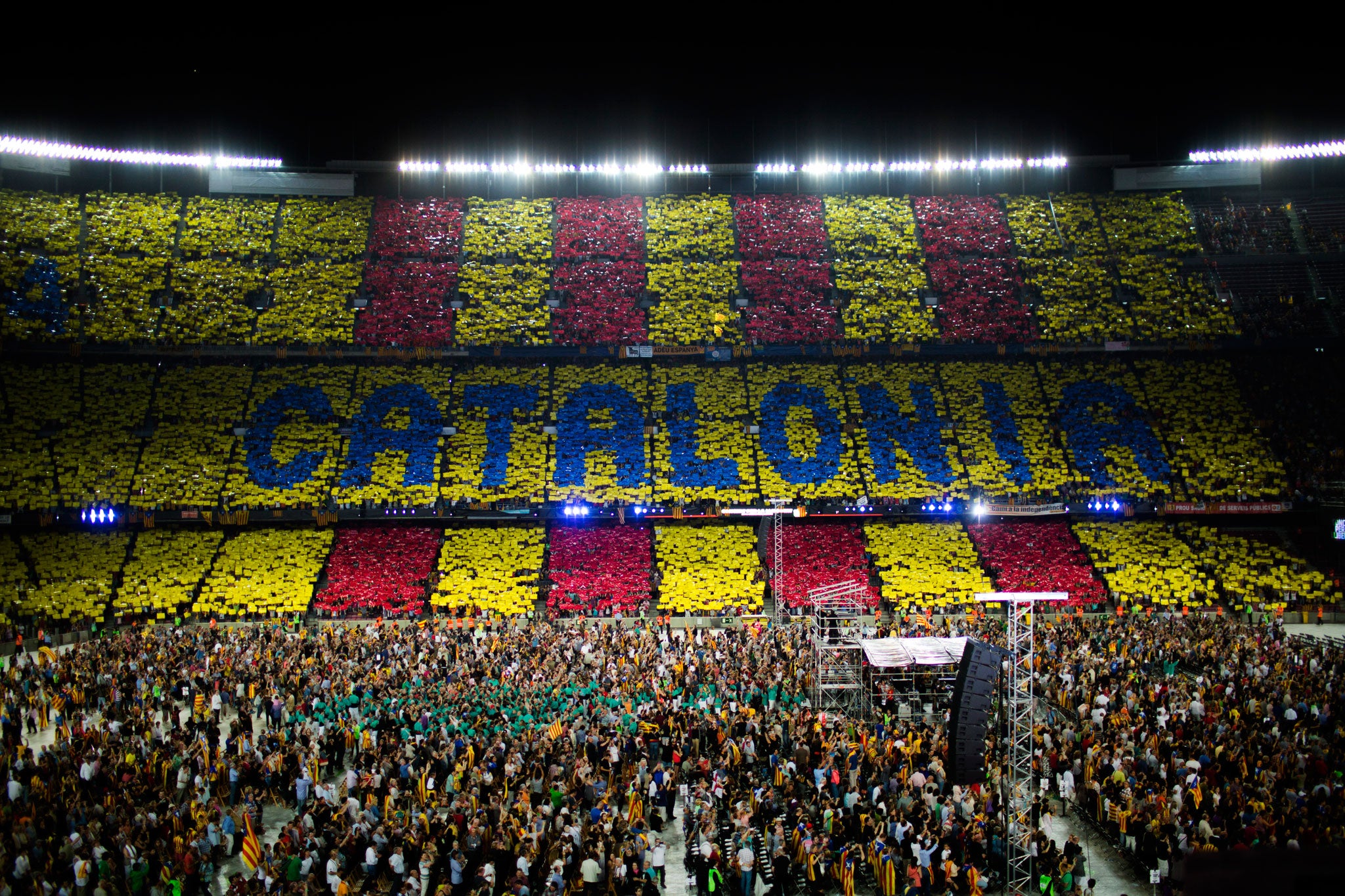
"Our campaign is guided by the undecided voters. The groups on either side who are making an emotional identity decision have become entrenched. By talking more about identity, the patriotic types on one side or the Scottish spirit on the other, it doesn't actually move the people in the middle who are making a decision about economics because they feel Scottish and secondarily, British, but the driving factor for them is not identity. It is a hard decision they are making, which is why we talk a lot about that.
"There's limited evidence about the [vote being split along class grounds], but our research doesn't really bear that out. If you look across demographics, there aren't trends – it's actually fairly stable. One of the reasons most of the undecided voters in the middle are women is a cautiousness, the awareness that this an irreversible decision. The decision they make will have an impact on future generations. It's a personal thing."
"Cameron's [Olympic Park] speech wasn't a speech to the Scottish people; it was a speech to the rest of the UK about Scottish independence. You find two different attitudes, people who engage and embrace this thing. The overwhelming feeling we are seeing, especially with undecided voters, is a worry that this is becoming divisive. Some people can't talk about it over the dinner table."
So what next? Very little, in fact, in either Scotland or Catalonia if the status quo remains. On 19 September, Scots will wake up being part of the United Kingdom, just as they have every morning for the past 307 years and on 9 November Catalans may send an unambiguous message to Madrid, but it won't matter a jot because Rajoy will wave a copy of the Spanish constitution at Barcelona.
That's perhaps not the end of the story in either Scotland or Catalonia, however. Cameron has already offered Scots 'devo-max', which equates to more executive powers being transferred to Holyrood, and if an overwhelming majority of Catalans come out in favour of separation the pressure on the Madrid government will be immense. After all, Spain is a democracy and you cannot ignore the will of the people forever.
But what if Scotland upsets all the odds and votes yes? "If Scotland decides to go ahead, well, we will respect their decision, but it will have to join the queue of the countries trying to become member states of the EU," says the senior Spanish government figure. "It will need to accomplish the measures that are required by the EU, and go to the back of the queue. And this applies to other organisations too, Nato, the UN and so forth."
It is obvious where this is going. Pro-independence Catalans have everything crossed in the hope of a yes vote in Scotland. The Spanish government, with its powers of veto in various European institutions, has made it clear that it will make it as difficult as possible for a newly empowered Salmond when he asks for overseas help to get his new state on the map.
Salmond has blithely suggested that by the time Scotland has negotiated its de-coupling from the UK, about 18 months after a yes vote, it will be ready to go as a fully functioning independent state. One group that will certainly put paid to that is the Spanish government. Not because it is in some way anti-Scottish, but because it knows what is coming down the line.
Alistair Dawber is the foreign editor of The Independent
Scotland vs Catalonia
Population
Catalonia: 7.5m
Scotland: 5.3m
Area
Catalonia: 32,114 sq km (roughly the size of Portugal)
Scotland: 78,789 sq km (including the islands)
National anthem
Catalonia: “Els Segadors” / The Reapers
Scotland: No official anthem, but “Flower of Scotland” used in football, rugby and Commonwealth games.
Official animal:
Catalonia: donkey
Scotland: unicorn
Patron saint:
Catalonia: Saint Jordi (St George)
Scotland: Saint Andrew
Motto:
Catalonia: Som i serem (We are and will be)
Scotland: Nemo me impune lacessit (No one provokes me with impunity)
Meat products
Catalonia: 14 official Catalonian sausages including bisbe (the bishop) and fuet (the whip)
Scotland: Haggis is worth approximately £15m a year to the UK
Famous towers:
Catalonia: Human towers, Castellers, can be up to 10 human storeys high
Scotland: Abernethy Round Tower, stands at 22m high and 5m in diameter
Sarah Parsons
Subscribe to Independent Premium to bookmark this article
Want to bookmark your favourite articles and stories to read or reference later? Start your Independent Premium subscription today.
Join our commenting forum
Join thought-provoking conversations, follow other Independent readers and see their replies
Comments